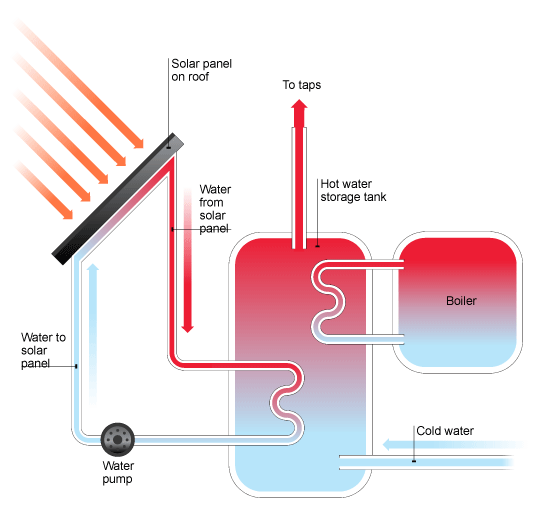

Mohammed Haye's & Arun Sharma's Page.


Solar Power
Solar cells are devices that convert light energy directly into electrical energy.
Solar panels do not generate electricity, but rather they heat up water. They are often located on the roofs of buildings where they can receive heat energy from the sun. The diagram outlines how they work.
Cold water is pumped up to the solar panel, there it heats up and is transferred to a storage tank.
A pump pushes cold water from the storage tank through pipes in the solar panel. The water is heated by heat energy from the sun and returns to the tank. In some systems, a conventional boiler may be used to increase the temperature of the water.

Advantages
-
Solar energy is a renewable energy resource and there are no fuel costs. No harmful polluting gases are produced.
Disadvantages
-
Solar cells are expensive and inefficient, so the cost of their electricity is high.
-
Solar panels may only produce very hot water in very sunny climates, and in cooler areas may need to be supplemented with a conventional boiler.
-
Although warm water can be produced even on cloudy days, neither solar cells nor solar panels work at night.
4kW per year Solar Panel =
£6,000-£8,000